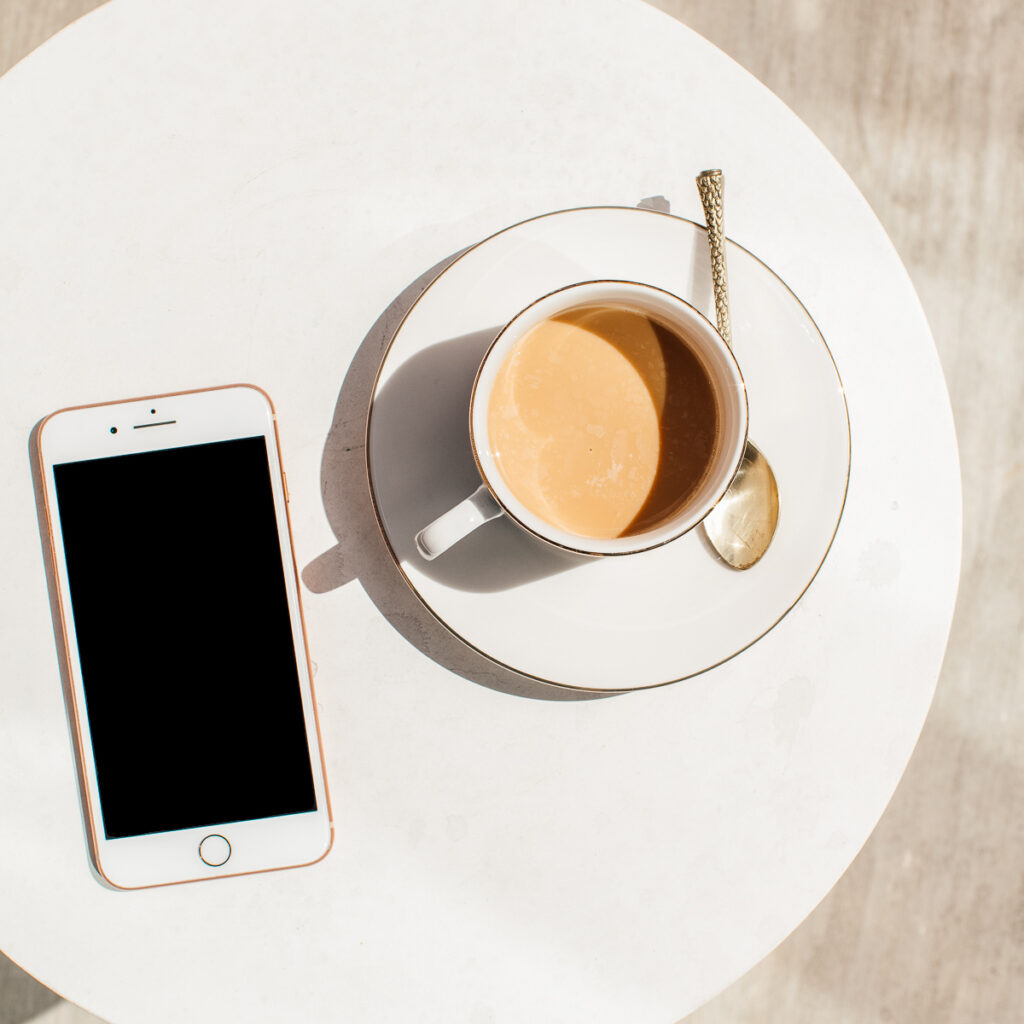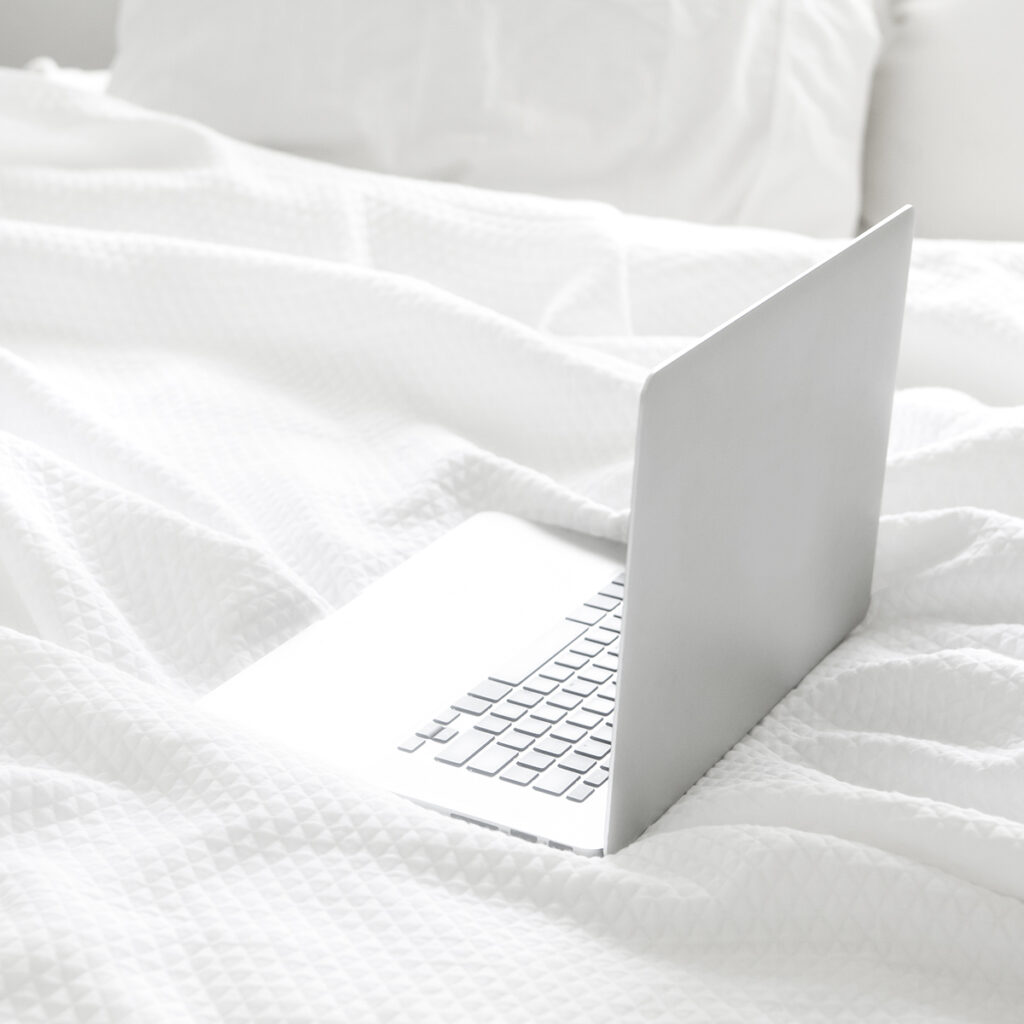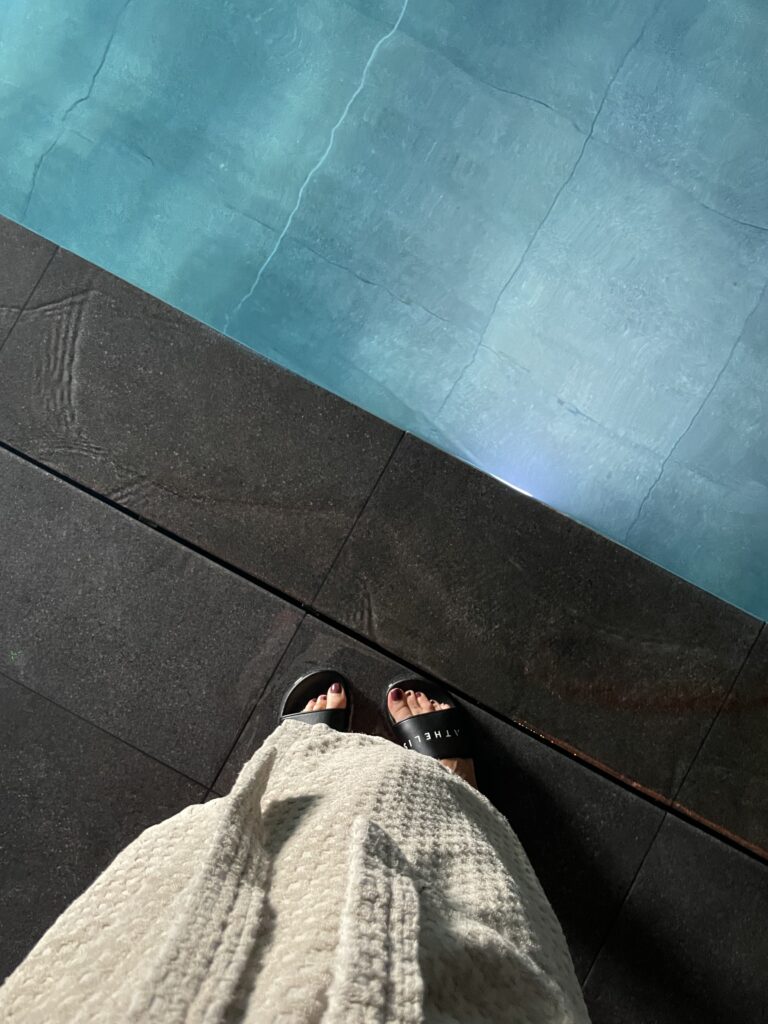“I‘m so addicted to my phone” she said as we chatted over a coffee as the kids played on the playground. She had become aware of just how difficult she found it to leave her phone alone. Constantly getting it out of her pocket or bag, checking it, then becoming conscious she was checking it, so making a concerted effort to put it away. Even when there had been had no notifications.
It was like watching a really uncomfortable and awkward battle – a scrap – but one I was all too familiar with myself.
“I feel like I just can’t leave it alone! I’m always worried I’ve missed an email from work, or if I don’t read the messages on the Mums WhatsApp Group, I’ll never catch up and miss something important. I feel so guilty though when the kids shout ‘get off your phone mum!’. And I feel like a hypocrite when it’s a nice day outside and I’m yelling at them to get off their iPads. I’m hardly one to talk!! “
As if my magic, the phone dinged. The phone came back out and the message was instantaneously checked.
“Oh sorry, it’s the Mums Group … I’ll just have to reply quickly. Don’t want them thinking I’m not acknowledging them – otherwise you know what it’s like?! We might not get invited to a group event or party outside of school and then there’s the drama that ensues after that. Although to be honest, I don’t know how I miss anything in regards to actual school news and information! I shouldn’t really need to be on this WhatsApp group. It’s not like the school doesn’t send a newsletter, and a further 100 messages every single week, so I really have no excuse!” She laughed. But the laugh felt strained… stressed even.
As I sat watching the kids running free without a care in the world, I was taken back to my own childhood. My own mobile device FREE childhood. Watching TV consisted of 4 channels, summers were spent outdoors or complaining you were bored, and you didn’t know what anyone else spent their time doing at the weekends or in school holidays, unless you had a very real and close relationship with them.
I only actually got a Nokia 5110 back in 1998 the year I went to university. I never really used it. Only to text my mum and sister, and occasionally one of my room-mates. Any major calls were still made on the land-line (for which you had to wait your turn living with 5 other girls!) and there was nothing like Facebook or any kind of social media back then. Emails were done on a computer.
I couldn’t help but think on how in 20 years the world had completely transformed around us, yet as humans we haven’t evolved quick enough to keep up.

What is Urgency Culture?
In the digital age we have seen a major shift in relation to the boundaries between work and home life. Between productivity time, and leisure/relaxation hours.
As I watched my friend battle with the guilt of knowing she ‘shouldn’t’ be spending so much time on her phone, because she was out with her friend and children; but seemingly unable to release herself of the compulsion to keep touching it to flick on the home screen to ‘check it’.
his phenomenon is commonly known as ‘urgency culture’ which is toxic idea that we must always be doing something ‘productive’ or ‘worthwhile’ when it comes to living our best life, doing our best work, or moving towards achieving our goals and dreams. Essentially we are expecting ourselves to be available 24/7 for work, family, friends, community, and even to a point strangers (by ‘having to’ post everything to social media all the time.)
We seem unable to just BE in the moment anymore. To simply enjoy it for what it is. Instead of taking a mental picture we need to dig around in our handbags for our phones, and capture every moment so that we can SHARE it, rather than live it, breathe it and be in it.
Is it me, or is anyone else getting a bit tired of living like this?
The Role of Social Media
Urgency culture I think stems from our addiction to, and the unparalleled growth of social media in our culture. When I was a teenager I might of wondered occasionally what’s everyone else doing? but certainly not daily, and even if I did, the answer was left to my imagination.
Living like this creates a frame of comparison – all the time – a fear of missing out, not being good enough, not living a life as exciting as someone else’s. It’s a constant DAILY reminder that time isn’t on our side, that we are missing out, or not doing enough, so time is of the essence because we aren’t going to here forever!! So quick, lets get busy (and document it all, so everyone knows we are just as busy (aka worthy/fulfilled) as they are.
Living through this filter – this heavily edited, curated, unreal filter of what people CHOOSE to share on social media – means that now the lines have become blurred between what REALLY needs our attention and is important to our lives and best selves… and what is not.

The Pandemic Years and How it Blurred the Lines Between Home and Work
The pandemic didn’t help. Since stay-at-home orders were put in place in 2020 there was a shift in the way that many people lived and worked. Most working families were juggling work, schooling and what was essentially the longest ever school holiday with nowhere to go with the endless pressure of earning a living, educating and entertaining their children, whilst trying to navigate a truly daunting situation … and keep everyone in good mental, emotional and physical health. And they were just the basic day to day challenges!
Home became the office/workplace, the gym, social time, relaxation time. It became everything to us – everything meaningful, but also at times like a cage. And during this time people had to find the time and space to be wife, mum, employee, boss, colleague, friend, teacher etc all in one place within the confines of each day. We had to be everything to everyone all at once, in one place.
We were all forced to make meaningful, and in fact all communications and connections through our devices. Whether personal or professional.

The lines between home and work (and school) were well and truly blurred. We were mums and teachers and employees all at the same time, for months on end…. or was it years?! (I’ve blocked it out!) But the truth is that this regular reinforcement over months and years that we needed to be free and available to perform 24-7 caused a rapid increase in stress, overwhelm, lack of quality rest, toxic productivity and chronic mum guilt.
And the worrying thing is since restrictions were lifted, I am hearing more and more women complain of all these things, yet feel quite powerless to do anything about it.
The pace of life has returned to ‘normal’ but now those people working from home, feel like they need to be ‘free and available’ at all times to respond to requests. Urgency Culture is exactly this – the inability any more to determine what is urgent and important, and to create healthy boundaries on your time when it comes to other people’s expectations of you.
This leads nowhere good. Only to exhaustion, overwhelm and burnout.
How to Escape
It can take a lot of commitment, concerted effort and time to push back against the habits and demands created by urgency culture, and this blog is here to help you to reclaim some of your power back and create healthy boundaries and rules to allow you live a life of Work and rest. Productivity and relaxation. Filling your own cup and contributing to something bigger.
Your time is YOURS
Your decisions on how to spend that time are YOURS.
What’s important and urgent to you, may be different that someone else’s version, but that is YOURS to determine and act upon.
Repeat after me – “MY FREE TIME IS NOT THE SAME AS MY AVAILABILITY”.

1 Create Boundaries
The first step really is to commit to setting healthy boundaries for yourself. Only YOU have the power to change this, so you must be willing to practise some healthy, much needed discipline in order to create better habits.
If you are getting frustrated with other people for encroaching on your home time (or vice versa) but you are not communicating with them when you are available to dedicate time for them; then you are teaching them how to treat you.
Rather than waiting for other people to notice your stress, feel bad, and then adapt their behaviour to suit you; realise that this rarely happens. Notice that other people aren’t always that perceptive, and help them out by telling them how you want and need to be communicated with.
“People will push you as far as you are willing to allow them.”
Beyonce
So, as important as it is to set boundaries with others, we must also be willing to set boundaries with ourselves to overcome the demands of urgency culture. Often, we are waiting for people who cause us stress to change their behaviors and habits, instead of tapping into our own agency and changing how we interact with the people who cause said stress. Boundaries are meant for ourselves, just as much as they are meant for others. So instead of waiting for other people to make choices that would benefit us, we have to be willing to make choices for ourselves that teach people how to interact with us.
2. Important & Urgent Versus Feels Important but Isn’t Urgent
If you have listened to my podcast or read my blog on ROCKS – how I prioritise my time to get sh*t done; you will have heard me talk about categorising ‘to dos’ in a very specific way in order to help you gain clarity.
There are four key categories.
- Not Important and Not Urgent (watching TV)
- Not Important but Feels Urgent (friend texting you about some gossip whilst you’re in work)
- Urgent and Important (an email from work or school that requires a response within a deadline)
- Very Important but does not feel urgent (going to the gym, planning your meals for the week)
Most people tend to multi-task the first two points, and sometimes even combine that with the third point. Then because they are so exhausted and overwhelmed from trying to multi-task everything and not particularly doing anything mindfully and with presence, they have no energy to work on the important stuff.
Instead priortize the Very Important stuff first in your diary, so it always gets done.
Then schedule time to address the urgent and important stuff at certain points in the day.
The rest gets filtered around this.

3. Take Back Control
Turn off your notifications on your phone. All they are is distractions from your focus.
Have ‘rules’ around phone use. For example, I only look at my phone AFTER I’ve dropped the kids off from school. I never look at it until then unless it’s something urgent or someone calls me. I can only use it for music to meditate to or for working out.
This means I give undivided attention to the kids before they start their day. If I were to look at my phone at this stage, I might get a glimpse of what the day had in store for me, and feel overwhelmed! And that is not how I want my day or my girl’s day to begin.
In addition try to create habits around your days, weeks and months so you can batch your work and productive time AND your relaxation and restoration time. Make YOU a part of your routine and create
For example on certain mornings before work, it might be your gym/walking/swim/meditation time. Same time, same days, each week. It’s scheduled. And it’s scheduled FIRST.
4. Monitor Your Phone Time
Did you know that the average American checks their phone 344 times per day!!! That’s about 23 times per hour for the average person who wakes at 7am and goes to bed at 10pm! No wonder so many of us are distracted, can’t focus and feel unfulfilled.
Make it a competition with yourself to reduce you phone / screen time each week. You can set your phone to give you reports each week on how you’ve done and each week just try to reduce your phone use by 15 minutes on average per day.
5. Monitor Your Energy & Emotions
If you are feeling drained, notice if you are sticking to your boundaries or falling back in to bad habits again. Listen to what your body is telling you. What and who is making you feel drained? How can you reclaim your power over this? Do things need an URGENT response or are you making it feel urgent? Make a list – put pen to paper and get it out of your head. Then TAKE ACTION.
And lastly if you want further tips on how to escape Digital FOMO, then have a listen to Episode 23 of The Best Self Podcast available on Apple or Spotify: “Can’t Switch Off? 5 Ways to Escape Urgency Culture and the Constant Need to Feel ON.”

Comments +